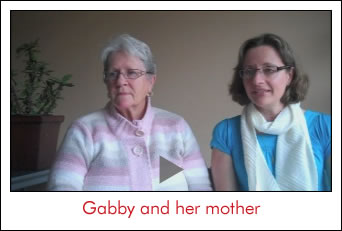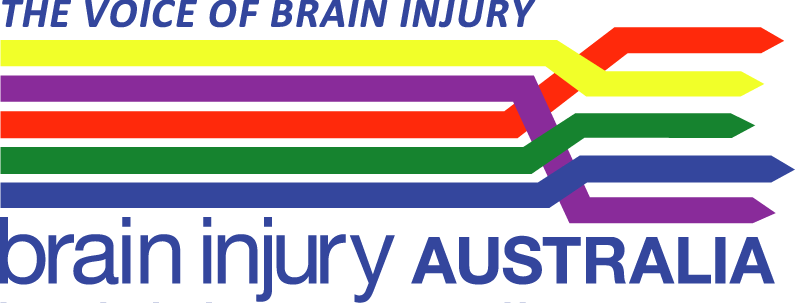- MODULE 2: Working with ABI
- Introduction
- Take the Pre-test
- A. Uniquely building independence
- a) Unique
- b) Injury-Effect-Behaviour
- c) Frontal lobe proxy
- d) Change happens
in the day to day - e) A life span view
- f) Person centred, Goal directed
- B. Through emotions and relationships
- g) Person with ABI
- h) Family members
- i) Grief and loss
- j) Support workers
- k) Managers and Team leaders
- l) Case managers
- m) Professional boundaries
- C. With services
- n) Pathways
- o) Part of a team
- p) The services network
- D. Principles and standards
- q) Principles and standards
- E. Integration
- r) Practice tools
- s) Case study
- t) Further learning
- Take the Post-test
j) Support workers
- i)
Intro
- ii)
Workers
Video - iii)
What good
looks like - iv)
My
experience - v)
What
I bring - vi)
My service
provider - vii)
Questions
i) Workers
A key to working with a person with an ABI is building a relationship with them.
As noted earlier it is important to not make assumptions. Working with people with acquired brain injury can be difficult.
- It can be hard to get to know them.
- It can take time to get to know them.
- Behaviours can be difficult to deal with.
As one worker put it.
Everyone is different. Everyone has got different problems and everyone has got different attitudes and you never try and make any judgment. Basically you try to accept them as they are and deal with it.
At first it takes a while for them to trust you. That's the biggest issue. They tend to become a bit aggressive at first, or shy away from you, don't want to know. Sometimes they don't even want to listen to you. And that's a big problem because that kind of puts you on the back step to try to help them... especially if you are new.
Working with people with ABI can be challenging. Workers have to understand what pushes their buttons so they can develop strategies to respond appropriately.
As one worker put it:
I think the biggest challenge for me at first was when they become abusive. And sometimes it becomes very personal. And it is hard to kind of ignore it because there are a lot of bad words thrown around at you, they might become more aggressive and push you or they might decide to ignore you or yell at you or even in public is another big issue where they have become very aggressive in public and they might even embarrass you.
And it makes it very hard to deal with. You have to not take it personally. I think it is basically that you just kind of click off and just accept he's got a brain injury and don't worry about what other people think, just focus on him, and it usually goes all right.
Rules of thumb
- Take time to get to know the person and their uniqueness.
- Understand the connections between the injury, effect on their brain and effect on their behaviour.
- You don't have to take behaviours personally.
- Understand what pushes your buttons and develop strategies for dealing with this.
- Understand your role with the person with ABI.
- Identify your professional support network.
ii) Attendant Care Provider Brain Injury's Story (13.5 mins)
iii) Good attendant care
Good attendant care is an amalgam of:
- The experience of the person receiving attendant care and what they bring.
- What you, the worker, brings.
- How you do the work together with your clients.
- The experience of clients’ family members and what they bring (in situations where attendant care is provided in family settings).
- What your service provider brings.
- What the case manager brings.
The following is a description of what good attendant care looks like from the point of view of the worker.
iv) My experience as a worker
- I am treated with dignity and respect (without discrimination).
- I feel safe.
- I am allowed to do my work.
Doing the work together
- I do what I am supposed to do – what’s in the plan.
- Our work is goal directed work. I work with my clients on their goals to achieve their plan.
- I support and encourage my clients to be independent in areas they are able to manage.
- I am building on my clients’ strengths.
- I understand my clients emotional journey (e.g. injury, grief, loss and their impacts).
- We communicate well.
- We respect each other.
- We keep the relationship professional
- I don’t try to get my client to be my friend
- My client doesn’t try to get me to be their friend.
- I don’t accept gifts.
- I don’t share my personal details with my clients.
- My client doesn’t ask me to do things that are outside my role.
- I respect my clients privacy (and keep confidential information confidential).
- I respect my clients’ home.
My clients’ family members
Where a person is receiving attendant care at home with other family members also living in the home then:
- I collaborate with my clients’ family members as part of the team.
- I understand how families work as one system - any change for one family member will affect every other family member in some way.
- I understanding my clients’ family member reactions and am able to put myself in the shoes of family members and make sense off their reactions, such as confusion and fear, distress and anger.
- I treat all family members with respect.
- I look to work with family members strengths.
v) The worker: what I bring
I understand brain injury/spinal cord injury.
I have been appropriately oriented to the characteristics and needs of this person.
I have the practical skills to work on what’s needed: e.g.
- Manual handling
- Personal hygiene and grooming
- Maintenance of continence
- Principles of skin care
- Assisting with nutrition
- Assisting with medications
- Worker Health and safety rights and responsibilities, policies and procedures
- Infection control
I have the interpersonal and communication skills to:
- Effectively communicate with the client / their family/ other relevant people
- Understand the client and their needs from psychological, social and mental well being perspectives
- Identify and respond appropriately to behaviours of concern (difficult or challenging behaviour).
I follow my service provider’s policies and procedures.
I arrive on time.
I understand my client’s cultural and/or religious background sufficiently to better work with my client (than if I didn’t understand my client’s cultural and/or religious background).
I have the skills to deal with conflict and assist in resolving it.
I am in ongoing communication with my supervisor/service coordinator.
vi) My service provider
My service provider:
- Ensures I have the basic skills and knowledge they need in order to work effectively with me.
- Introduces me to clients and orients me to their unique situation and what’s required.
- Works as part of a team with other agencies, services, etc. that may also be working with my clients.
- Monitors what I do.
- Is approachable and accessible.
- Effectively manages disputes.
- Effectively resolves complaints (in a timely way).
- Is always on the lookout for ways to improve the work.
- Gives me confidence that if I made a complaint to my service provider it would be dealt with appropriately (and I would not fear adverse consequences).
- Has a philosophy of continually monitoring and improving its services.
vi) Questions
Answer the following questions:
You have a group of workers who are working with people with acquired brain injury. This group seems to be more stressed than the group of workers you have working with people in other areas of your service.
You are running a discussion with the staff members.
What questions might be useful for starting the discussion?
What are some of the points you might want to make during the course of the discussion?
1.
How are ABI clients different from the other clients our service works with?
2. Pick one of your clients and talk about how you are getting to know them.
3. What behaviours do you find difficult? What strategies are you using? What else might be useful?
4. What gains have you seen? What gains are you expecting?
5. What pushes your buttons? How do you deal with this?
1. Take time to get to know the person and their uniqueness.
2. Understand the connections between the injury, effect on their brain and effect on their behaviour.
3. You don't have to take behaviours personally.
4. Understand what pushes your buttons and develop strategies for dealing with this.
5. Understand your role with the person with ABI.
6. Identify your professional support network.


